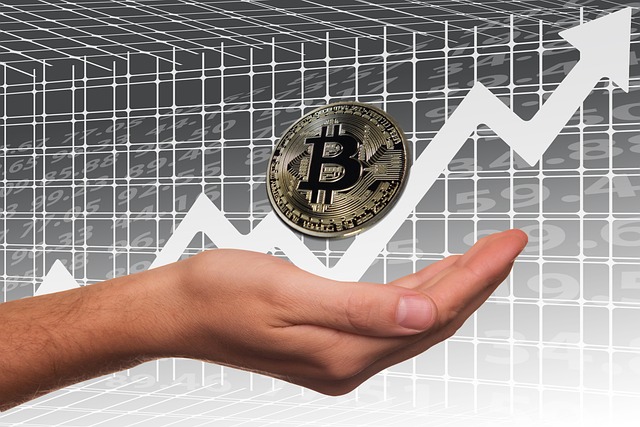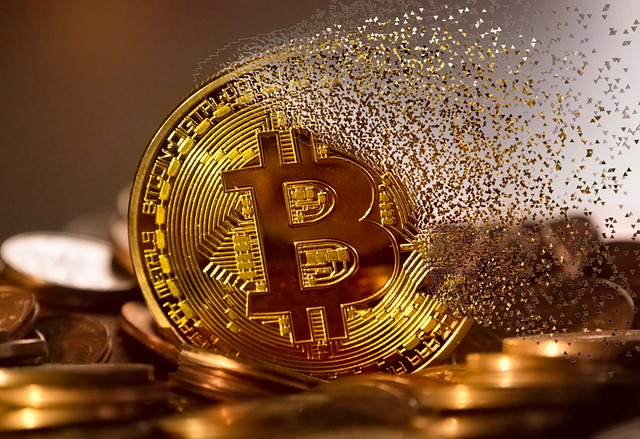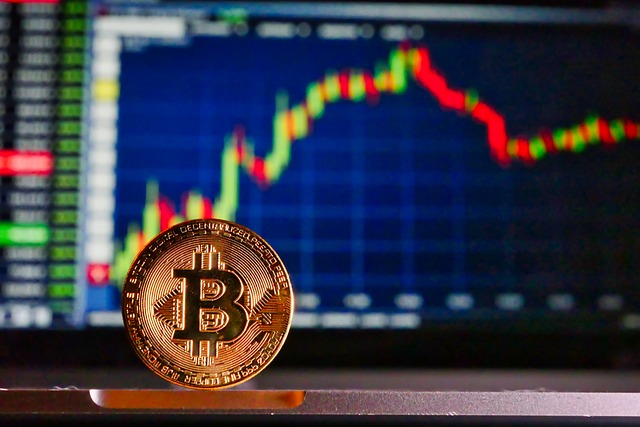The DeFi Crypto Revolution: A Roadmap to Success
The DeFi Crypto Revolution: A Roadmap to Success

Understanding the Basics of DeFi: Exploring the World of Decentralized Finance
Decentralized Finance, also known as DeFi, is a revolutionary concept that is transforming the world of finance as we know it. Unlike traditional financial systems that rely on intermediaries such as banks and brokers, DeFi operates on a peer-to-peer network, utilizing blockchain technology to facilitate financial transactions. By removing the need for intermediaries, DeFi aims to democratize access to financial services and empower individuals to have more control over their money.
One of the key features of DeFi is its ability to create and execute smart contracts. Smart contracts are self-executing contracts with the terms of the agreement directly written into the code. These contracts are transparent, immutable, and automatically enforceable, eliminating the need for trust or intermediaries. This opens up a world of possibilities, enabling individuals to engage in various financial activities such as lending, borrowing, trading, and investing, all within a decentralized ecosystem. With DeFi, financial transactions can be carried out quickly, efficiently, and at a much lower cost compared to traditional methods. It’s no wonder that DeFi is gaining significant traction and attracting a growing number of users and investors.
The Rise of Cryptocurrencies: How Digital Assets are Transforming the Financial Landscape
Cryptocurrencies have witnessed a remarkable rise in popularity over the past decade, revolutionizing the financial landscape in ways previously unimaginable. Digital assets, such as Bitcoin and Ethereum, have emerged as the pioneers of this transformative movement. Unlike traditional forms of currency, cryptocurrencies exist solely in the digital realm, functioning through a technology called blockchain. This decentralized and transparent system eliminates the need for intermediaries like banks, creating a peer-to-peer electronic cash system accessible to anyone with an internet connection. As a result, individuals and companies around the world are now able to seamlessly transact, transfer funds, and store wealth without the limitations of traditional financial institutions.
This digital revolution has garnered immense attention and intrigue, with a growing number of individuals investing in cryptocurrencies and even using them for everyday purchases. The decentralized nature of cryptocurrencies offers numerous benefits, including increased privacy, lower transaction fees, and faster cross-border transfers. Furthermore, the underlying blockchain technology provides an unparalleled level of security and immutability, making digital assets an attractive option for those seeking an alternative form of financial security. As cryptocurrencies continue to gain acceptance, it is becoming increasingly evident that this technological advancement is not just a fleeting trend but a significant development that could reshape the financial landscape for years to come.
Exploring the Benefits of DeFi: Why Decentralized Finance is Gaining Traction
Decentralized Finance (DeFi) is capturing the attention of investors and enthusiasts alike, and for good reason. One of the key benefits driving the rise of DeFi is its ability to provide financial services without the need for intermediaries such as banks or traditional financial institutions. By leveraging blockchain technology and smart contracts, DeFi allows individuals to engage in various financial activities, including lending, borrowing, and trading, directly on the decentralized network.
The elimination of intermediaries means that individuals can have full control over their funds and financial transactions. This, in turn, leads to increased transparency and security. With DeFi, users can access financial services using decentralized applications (DApps) and interact with smart contracts that automatically execute transactions without the need for trust in a centralized authority. Furthermore, DeFi also brings financial services to the unbanked and underbanked populations, who may not have access to traditional banking services. This inclusive nature of DeFi empowers individuals and provides equal opportunities for everyone to participate in the global financial system. With these advantages, it’s no wonder that decentralized finance is gaining traction as a transformative force in the financial landscape.
The Key Players in the DeFi Ecosystem: Meet the Projects and Platforms Driving the Crypto Revolution
Decentralized finance (DeFi) has emerged as a game-changer in the financial landscape, and behind its rise are some key players who have paved the way for this revolutionary movement. One such player is MakerDAO, an open-source platform that allows users to create and manage stablecoins backed by collateral. This project has gained significant popularity and has proven to be a key player in the DeFi ecosystem, offering stability and security to users seeking to escape the volatility of traditional cryptocurrencies.
Another prominent player in the DeFi space is Compound, a decentralized lending and borrowing platform. With Compound, users can lend out their cryptocurrencies and earn interest, or borrow funds against their held assets. This platform is powered by smart contracts, enabling seamless transactions and eliminating the need for intermediaries. Compound has gained traction among users looking for alternative ways to make their assets work for them, while also democratizing access to lending and borrowing services. Together, these projects and platforms are driving the crypto revolution and reshaping the way we think about finance.
Navigating the DeFi Landscape: A Guide to Choosing the Right Platforms and Tokens
It can be quite overwhelming to navigate the ever-expanding landscape of DeFi platforms and tokens. With a multitude of options available, it’s crucial to make informed decisions to ensure the best outcomes for your investments. One of the key factors to consider when choosing the right platform is its reputation and track record. Research the team behind the project, their experience, and previous successes. Look for platforms that have been audited by reputable third-party firms, as this provides an additional layer of security and trust.

When it comes to choosing the right tokens, it’s crucial to conduct thorough research and due diligence. Start by understanding the token’s purpose and utility within the platform ecosystem. Look for tokens that have a clear use case and potential for adoption.


Unleashing the Power of Smart Contracts: How DeFi Utilizes Blockchain Technology
Smart contracts are at the heart of decentralized finance (DeFi), revolutionizing traditional financial systems. These contracts are self-executing agreements that are stored on a blockchain, such as the Ethereum network. By leveraging the power of blockchain technology, DeFi platforms can automate and remove intermediaries from various financial activities, including lending, borrowing, and trading.
One of the key advantages of utilizing smart contracts in DeFi is the increased transparency and security they provide. With traditional financial systems, there is often a lack of transparency and accountability, leading to inefficiencies and potential fraud. However, with smart contracts, all transactions and agreements are recorded on the blockchain, making them immutable and publicly accessible. This transparency fosters trust among participants and reduces the risk of fraud, as the terms and conditions of the contracts are enforced automatically without the need for intermediaries. By utilizing smart contracts, DeFi pioneers are reshaping the financial landscape, providing individuals with greater control over their finances and opening up new opportunities for economic inclusion.
Managing Risks in DeFi: Tips to Safeguard Your Investments and Navigate Volatility
In the world of decentralized finance (DeFi), managing risks is crucial to safeguard your investments and navigate the volatile crypto market. With the allure of high returns and innovative financial products, it’s important to approach DeFi with caution to protect your hard-earned money.
One of the first steps in managing risks in DeFi is conducting thorough research. Before investing your funds into any project or platform, take the time to understand its underlying technology, team, and community. Reading whitepapers, exploring online forums, and seeking recommendations from trusted sources can provide valuable insights and help you make informed investment decisions.
Another vital aspect of risk management in DeFi is diversification. Instead of putting all your eggs in one basket, consider spreading your investments across different projects and platforms. This reduces the impact of potential losses and exposure to a single point of failure. Diversification allows you to take advantage of various opportunities within the DeFi ecosystem and minimize the overall risk to your portfolio.
The Role of Decentralization: How DeFi is Disrupting Traditional Financial Systems
Decentralization is the key driving force behind the disruption that decentralized finance (DeFi) is causing in traditional financial systems. Unlike traditional financial systems that rely on centralized intermediaries such as banks and financial institutions, DeFi operates on a decentralized network, primarily utilizing blockchain technology. This shift in paradigm brings numerous advantages, such as increased transparency, accessibility, and security.
By removing the need for intermediaries, DeFi enables individuals to have greater control over their finances. Users can access and manage their funds directly through decentralized applications (DApps), eliminating the need to rely on third parties for financial services. This not only reduces costs but also allows for a more inclusive financial system, where individuals who may not have access to traditional banking services can participate in various financial activities, such as borrowing, lending, and trading.
Furthermore, the decentralized nature of DeFi brings about enhanced transparency. All transactions conducted on blockchain networks are recorded publicly, ensuring that every participant in the system has access to the same information. This eliminates the opacity that often characterizes traditional financial systems, where trust is placed solely on the intermediaries. With DeFi, anyone can verify and audit transactions, promoting trust and accountability in the ecosystem.
Lastly, DeFi offers enhanced security by leveraging the robustness of blockchain technology. Traditional financial systems are susceptible to hacks and fraudulent activities due to the concentration of sensitive data in centralized databases. In contrast, DeFi protocols utilize smart contracts, which are self-executing and tamper-proof, reducing the risk of fraud. Additionally, encryption and decentralized storage mechanisms employed in DeFi protect users’ funds and personal information, further safeguarding against potential threats.
In summary, the role of decentralization in DeFi has the potential to revolutionize traditional financial systems. By eliminating intermediaries, providing increased transparency, and enhancing security, DeFi opens up a world of opportunities for individuals to have greater control over their finances and participate in a more inclusive and secure financial ecosystem.
The Future of DeFi: Predictions and Trends to Watch Out For
The future of DeFi holds immense potential as the crypto revolution continues to gain momentum. One prominent prediction is the further integration of traditional financial systems with decentralized finance. As more financial institutions and banks recognize the benefits of DeFi, we can expect them to adopt and incorporate these technologies into their existing systems. This will not only enhance the efficiency and transparency of traditional financial processes but also open up new opportunities for individuals and businesses to access decentralized financial services.
Another trend to watch out for in the future of DeFi is the development of interoperability solutions. As the DeFi ecosystem continues to expand and new projects emerge, interoperability will become increasingly important. This means that different DeFi platforms and protocols will be able to seamlessly connect and interact with each other, creating a more interconnected and efficient decentralized financial network. Interoperability will enable users to easily transfer assets and liquidity across different DeFi platforms, fostering a more seamless and unified user experience. Furthermore, interoperability will also encourage collaboration and innovation within the DeFi space, driving the development of new financial products and services.
Success Stories in DeFi: Inspiring Examples of Individuals and Companies Thriving in the Crypto Revolution.
In the world of decentralized finance (DeFi), there have been some truly inspiring success stories of individuals and companies who have thrived during the ongoing crypto revolution. One such example is Alice, a young entrepreneur who decided to explore the opportunities offered by DeFi. With a little research and determination, Alice identified an up-and-coming DeFi project that caught her attention. She invested a modest amount of capital into the project’s token and kept a close eye on its progress. As the project gained traction and its token value skyrocketed, Alice’s investment grew exponentially, allowing her to reap handsome profits. Her success story not only highlights the potential for financial growth in DeFi but also underscores the importance of careful research and strategic investments.
Another remarkable example is XYZ Company, a traditional financial institution that recognized the potential of DeFi early on. Realizing the efficiency and security benefits offered by blockchain technology, XYZ Company integrated DeFi solutions into its existing operations. By leveraging smart contracts and decentralized platforms, the company was able to streamline its processes, reduce costs, and increase transparency for its clients. This move opened up new revenue streams and allowed XYZ Company to scale its business significantly. Their success story showcases how embracing DeFi can enable traditional companies to adapt and thrive in an ever-evolving financial landscape.
What is DeFi?
DeFi stands for decentralized finance, which refers to the use of blockchain technology and cryptocurrencies to recreate traditional financial systems in a decentralized manner.
How does DeFi work?
DeFi uses smart contracts on blockchain platforms to remove intermediaries and enable peer-to-peer transactions. It allows individuals to access financial services like lending, borrowing, trading, and more without the need for traditional banks or financial institutions.
Why is DeFi gaining traction?
DeFi offers several benefits, such as transparency, accessibility, and lower fees compared to traditional financial systems. It also allows individuals to have full control over their funds and eliminates the need for trust in centralized institutions.
Who are the key players in the DeFi ecosystem?
The DeFi ecosystem comprises various projects and platforms, including decentralized exchanges (DEXs), lending platforms, stablecoins, yield farming protocols, and more. Some popular examples include Uniswap, Compound, Aave, and MakerDAO.
How do I choose the right DeFi platforms and tokens?
When selecting DeFi platforms and tokens, it’s essential to consider factors like security audits, community reputation, liquidity, usability, and the team behind the project. Researching and analyzing the platforms and tokens thoroughly can help you make informed decisions.
How does DeFi utilize blockchain technology?
DeFi leverages blockchain technology, specifically smart contracts, to automate and enforce financial agreements. Smart contracts are self-executing contracts with the terms of the agreement directly written into code. They ensure transparency, immutability, and efficiency in DeFi transactions.
How can I manage risks in DeFi?
To safeguard your investments and navigate volatility in DeFi, it’s crucial to diversify your portfolio, conduct thorough research, stay updated on market trends, and use secure wallets and platforms. Additionally, only invest what you can afford to lose and never share your private keys or personal information.
How is DeFi disrupting traditional financial systems?
DeFi disrupts traditional financial systems by removing the need for intermediaries, such as banks, and enabling direct peer-to-peer transactions. It also provides financial services to the unbanked and underbanked populations globally, reducing barriers to entry and democratizing finance.
What are the future predictions and trends for DeFi?
The future of DeFi holds immense potential. Some predictions and trends to watch out for include increased adoption, integration with existing financial systems, regulatory advancements, the emergence of new DeFi protocols, and the integration of decentralized identity and decentralized insurance.
Can you provide some success stories in DeFi?
Sure! There are inspiring examples of individuals and companies thriving in the crypto revolution. Some success stories include individuals who made significant profits by participating in yield farming, companies that raised substantial funds through DeFi token offerings, and individuals who successfully managed their investments and achieved financial independence through DeFi strategies.
Todays Featured Product:
Buy, exchange and grow your crypto securely with a Ledger hardware wallet, combined with the Ledger Live app. It’s never been easier to keep your crypto safe and accessible. Buy direct from Ledger.com and get todays Special Offers Here.




